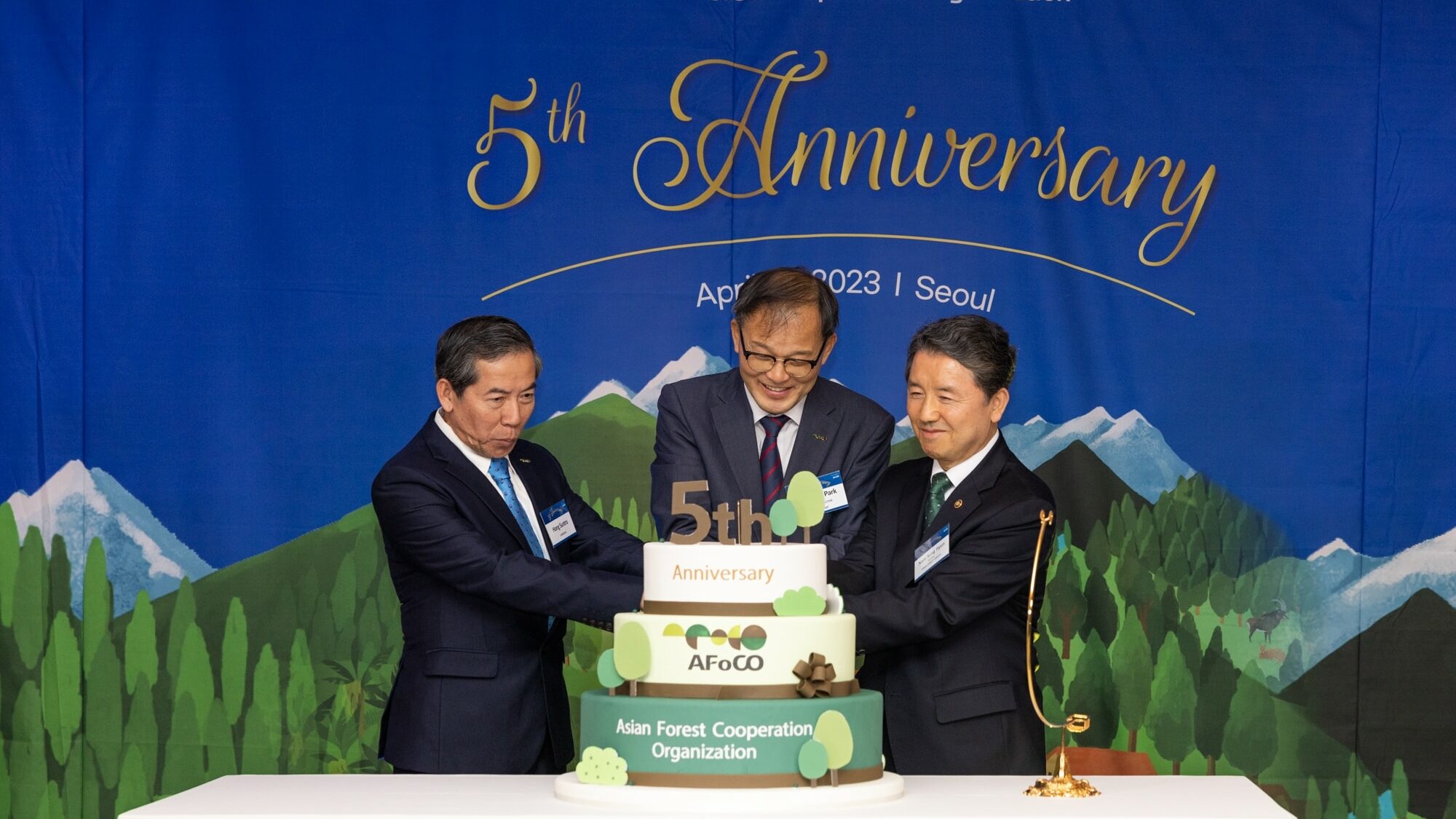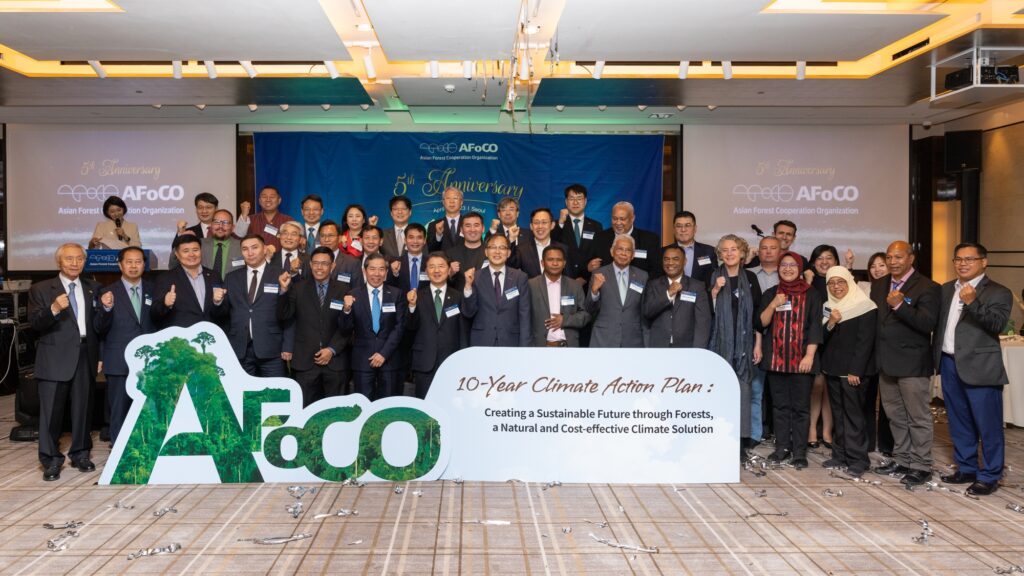April 26, 2023 — On the 26th of last month, AFoCO hosted the 5th anniversary celebration of the Asian Forest Cooperation Organization (AFoCO), the first international organization in the forestry sector established under Korea’s leadership. AFoCO, established through the ratification of the “Agreement on the Establishment of the Asian Forest Cooperation Organization (Treaty No. 2386)” on April 27, 2018, is an international organization aimed at enhancing forest cooperation within the Asia region. Our membership currently consists of 16 member countries — 14 Parties (Bhutan, Brunei Darussalam, Cambodia, Indonesia, Kazakhstan, Kyrgyzstan, Lao PDR, Mongolia, Myanmar, Philippines, Republic of Korean, Thailand, Timor-Leste, and Viet Nam) and 2 Observers (Malaysia and Singapore).


The celebration was attended by more than 150 guests, including members of the diplomatic corps, representatives from international organizations such as the Green Climate Fund (GCF) and the United Nations Food and Agriculture Organization (FAO), and executives from SK Forest and Shinhan Financial Group. During the event, AFoCO Executive Director, Dr. Chongho Park, presented the achievements of AFoCO since its establishment in 2018, as well as the “AFoCO 10-year Climate Action Plan,” which outlines the organization’s future vision. (See video below)
Over the past five years, AFoCO has played a central role in international forest cooperation in the Asia region, tackling global issues such as forest restoration, biodiversity conservation, and climate change through various forest cooperation projects. The AFoCO 10-year Climate Action Plan aims to expand the scope and scale of cooperation projects, focusing on forest restoration, community participation, and digital innovation, in order to enable an immediate response to climate change.
At the celebration, Dr. Sung-hyun Nam, the Minister of the Korea Forest Service, praised AFoCO for playing a proactive role as a platform for forest cooperation in Asia since its establishment, and expressed hope that AFoCO will continue to lead forest restoration and climate change response in the region.
Ms. Juliette Biao Koudenoukpo, Director of the Secretariat of the United Nations Forum on Forests (UNFF), via a video message, expressed her honor in celebrating AFoCO’s anniversary and underscored the significance of regional entities in connecting international policies to national actions. She commended AFoCO’s concrete contributions to sustainable forest management and addressing climate change, particularly highlighting their Landscape Partnership Asia program. Ms. Koudenoukpo assured AFoCO of the UNFF Secretariat’s continued support in their endeavors.
Dr. Chandra Silori, Deputy Executive Director of The Center for People and Forests (RECOFTC), in his video message, extended warm congratulations to AFoCO for its accomplishments over the past five years. Dr. Silori emphasized the strong partnership between RECOFTC and AFoCO, focusing on sustainable forest practices and management. He highlighted their recent collaboration with the Korea International Cooperation Agency to enhance data collection for community forestry in ASEAN Member States. Dr. Silori praised AFoCO’s role in achieving climate change targets and expressed eagerness for future collaboration.
Mr. Bruno Oberle, Director General of International Union for Conservation of Nature (IUCN), in his video message, congratulated AFoCO and acknowledged the crucial role of forests in attaining the Sustainable Development Goals. He thanked AFoCO for their work in Asia and expressed anticipation for more successes in promoting sustainable forestry practices.
Ms. Inger Andersen, Executive Director of the United Nations Environment Programme (UNEP), in writing, congratulated AFoCO on its 5th anniversary and acknowledged its dedication to enhancing forest cooperation among member countries. “While recognizing that forests can provide 27% of the solution to help prevent climate catastrophe, we are off track to achieve one gigaton of emissions reduction from forest by 2025 have been realised. According to UNEP’s Adaptation Gap Report launched during COP27 shows that current public and private commitments are only at 24%,” added Ms. Anderson.

